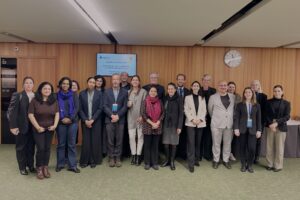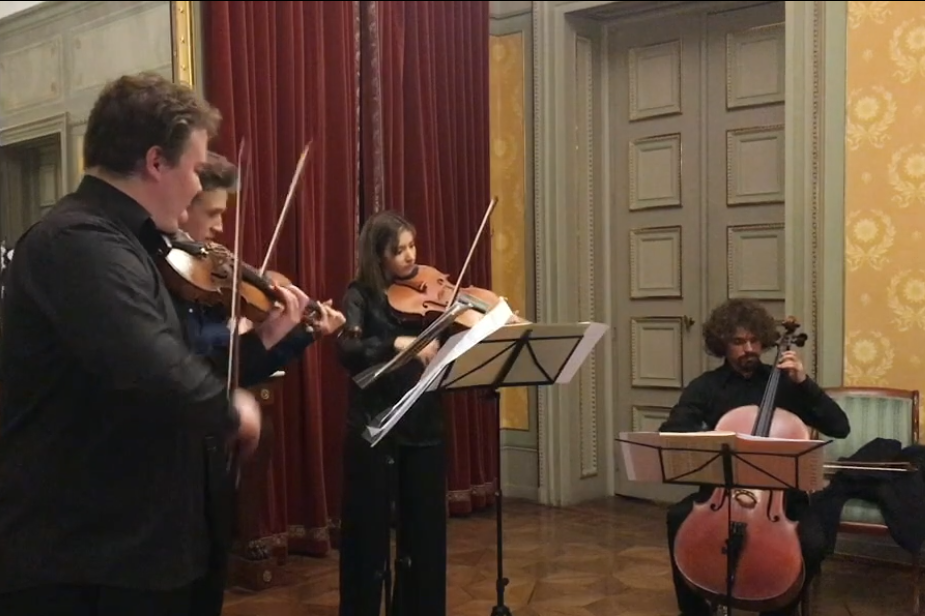
Oct 16, 2019 | Multimedia items, News, Video clips
ICJ’s first ever fundraising gala took place on 14 October at the iconic setting of the Palais Eynard in Geneva.
Sami Kanaan, Counselor and former Mayor of the City of Geneva, which provided its generous support, opened the event by speaking of the importance of the ICJ cooperation with the local legal community.
Next, several speakers offered a few answers to the theme of the evening: ‘Geneva, the defense of the Rule of Law: what can I do?’.
Pierre de Preux, former Bâtonnier, explained the great value that can be brought to defending rule of law in the world by supporting the ICJ through missions, as he himself did in Tunisia in the 80s.
He was followed by ICJ Commissioners Sir Nicolas Bratza (former President of the European Court of Human Rights), who discussed backsliding on human rights in contemporary Europe; lawyer Reed Brody, who discussed his work in bringing powerful dictators to account for human rights atrocities; and Justice Martine Comte of France, who described her experience in leading ICJ missions in Central Asia.
The ICJ President Prof. Robert Goldman and ICJ Secretary General Sam Zarifi also addressed the attendees.
The exchange was then followed by an inspiring concert by the young virtuosi of the Menuhin Academy and a delicious Buffet cocktail provided by refugee Chefs Jena Hamza (Syrian Kurd) and Sritharan Tambithurai (Sri Lanka). All in all, a wonderful evening combining substance, beauty and friendship.
Watch the video here:
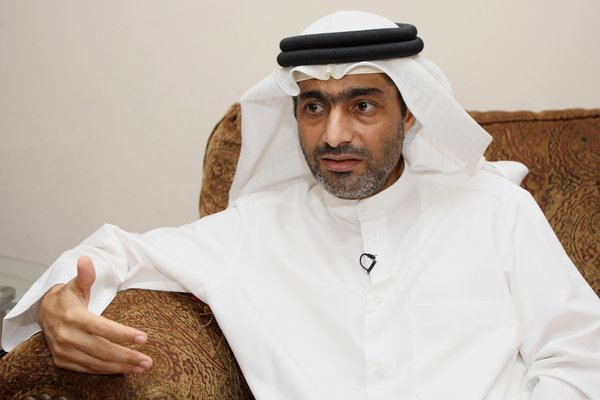
Oct 16, 2019
In an open letter, the ICJ and 139 other groups are calling the authorities of the United Arab Emirates to immediately and unconditionally release human right defender and 2015 Martin Ennals Award Laureate Ahmed Mansoor.
The full letter can be downloaded below in English and Arabic.
UAE-Free Ahmed Mansoor-Advocacy-Open letters-2019-ENG (English version, PDF)
UAE-Free Ahmed Mansoor-Advocacy-Open letters-2019-ARA (Arabic version, PDF)
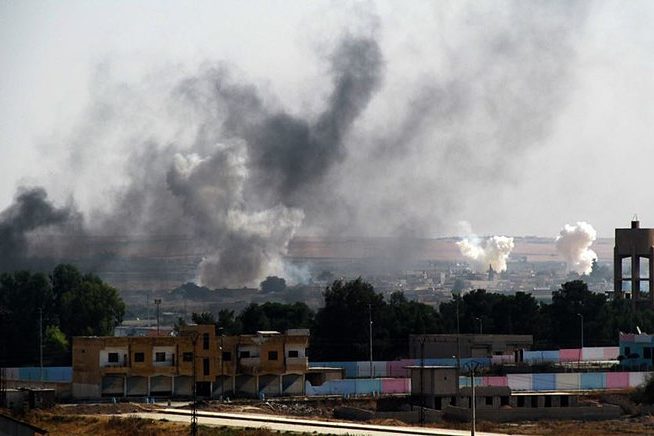
Oct 15, 2019 | News
Today, ICJ called on Turkey to comply with its obligations under the UN Charter, international humanitarian law and international human rights law, immediately end its military operations in Syria, and protect and ensure the protection of the Syrian civilian population.
The ICJ also reiterated its call on all parties to the Syrian conflict to respect and comply with international humanitarian law and international human rights law.
On October 9, Turkey initiated operation “Peace Spring” in Rojava, the Kurdish-led Syrian Democratic Forces (SDF)-held territory in north-east Syria, with the stated aim of securing Turkey’s border, “fighting terrorism” and facilitating the return of refugees to Syria. Turkey claimed to be acting pursuant to its right to self-defence under article 51 of the UN Charter, as well as UN Security Council resolutions on the fight against terrorism.
The ICJ recalled that none of these UN Security Council resolutions authorizes the use of armed force in violation of international law, and that the UN Charter prohibits the use of armed force by States, save when authorized by the UN Security Council or in self-defence.
Use of force in self-defence is lawful only when necessary to repel an armed attack and when proportionate to such attack. Military operations failing to abide by such requirements are in breach of the UN Charter.
“Turkey’s military operations violate the UN Charter and exemplify how the banalization of the illegal use of armed force continues to erode and dismantle the very fabric of the international legal order,” said Said Benarbia, the ICJ MENA Programme Director.
He added, “Instead of standing by while international law is being violated, the UN Security Council must take swift, appropriate measures to address the situation and to restore and maintain international peace and security.”
While UN Security Council member States have failed to find an agreement on even a statement on Turkey’s military operations in Syria, Turkish military operations continue to have a devastating impact on the general population, including multiple civilian casualties, attacks against civilian objects, including medical facilities and water supplies and infrastructure, and the displacement of more than 150,000 people, mainly civilians.
Turkish forces and the Turkish-backed armed groups have allegedly been responsible for violations of international humanitarian law and international human rights law. Members of one of these groups, the Ahrar Al-Sharqiya, have been accused of the extrajudicial execution of at least nine civilians, among whom is Kurdish politician and women’s rights activist Harvin Khalaf; torture and other ill-treatment; kidnapping; and looting and seizure of private property.
Turkey’s Defence Ministry said 595 “terrorists” were “neutralized” since the start of “Peace Spring.”
Under international humanitarian law, parties to an armed conflict must respect and protect the civilian population, and refrain from any direct, indiscriminate or disproportionate attack against civilians and civilian objects. International human rights law also continues to apply during the conflict.
“Turkish authorities must investigate and prosecute unlawful killings committed in the context of operation “Peace Spring,” including extrajudicial executions amounting to war crimes,” Benarbia said.
He added, “If no action is taken by these authorities, States must act, collectively and individually, to hold to account all those responsible for such crimes.”
Contact
Said Benarbia, Director of the ICJ Middle East and North Africa Programme, t: +41-22-979-3817; e: said.benarbia(a)icj.org
Syria-Turkey operations-News-Press releases-2019-ARA (Arabic version, in PDF)
Syria-Turkey operations-News-Press releases-2019-TUR (Turkish version, in PDF)
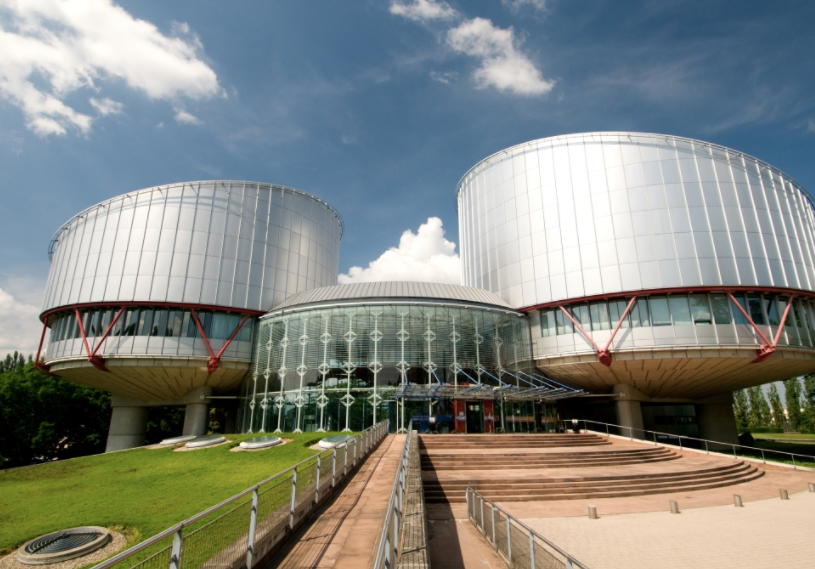
Oct 15, 2019
Today the ICJ, together with ILGA-Europe, the AIRE Centre and Human Rights Watch, submitted a joint third-party intervention to the European Court of Human Rights in the case of Oganezova v. Armenia (Application nos. 71367/12 and 72961/12).
In their written submissions to the Court, the interveners addressed the following issues:
(a)
under European and international human rights jurisprudence, the victim’s identity as an lesbian, gay, bisexual or transgender (LGBT) person is relevant to the assessment of whether the threshold for torture and other ill-treatment under Article 3 of the European Convention of Human Rights (ECHR) has been met. Specifically, the discrimination directed towards LGBT persons may indicate a particular motive and intent that may meet the threshold of Article 3 ECHR;
(b)
the Contracting States have a positive obligation to protect persons in their jurisdiction from violence and harassment based on their real or imputed sexual orientation and/or gender identity or expression, including the obligation to prevent, investigate, prosecute, punish and remedy such acts. In particular, Contracting States have the additional procedural obligation to take all reasonable steps to establish whether any hatred or prejudice connected to a protected characteristic may have played a role in the violent attack, where acts of violence are motivated in whole or in part by prejudice against an individual’s real or imputed sexual orientation and/or gender identity or expression; and
(c)
That the attitudes and practices in responding to violence and harassment against LGBT people in Armenia provide important contextual information in analyzing the case.”
Europe-Oganezova v. Armenia-Advocacy-Legal Submission-2019-ENG (full text of submission, in PDF)

Oct 14, 2019 | Communiqués de presse, Multimédia, Nouvelles
La condamnation ce jour de dirigeants séparatistes catalans du chef de sédition restreint de façon indue le droit aux libertés d’expression, de réunion pacifique et d’association, déclare la CIJ.
« Ces condamnations représentent une atteinte grave à l’exercice des libertés d’expression, de réunion pacifique et d’association des dirigeants politiques. Le recours à la loi sur la sédition dans le but de restreindre l’exercice de ces droits n’était ni nécessaire, ni proportionné et, partant, injustifiable, » a déclaré Massimo Frigo, Conseiller juridique principal pour le programme Europe et Asie Centrale de la CIJ.
La CIJ souligne également le fait que la définition excessivement étendue du crime de sédition appliquée dans le cas présent crée un risque élevé d’arbitraire.
« Nous sommes inquiets de constater que la Cour Suprême ne respecte pas les obligations internationales de l’Espagne en matière des droits de l’homme dans l’examen des accusations visant les prévenus, ce qui affaiblit fortement les condamnations en découlant, » a-t-il ajouté.
Neuf des douze leaders politiques jugés – parmi lesquels des membres haut placés du gouvernement catalan – ont été déclarés coupables de sédition en lien avec leur participation à l’organisation, le 1er octobre 2017, du référendum sur la question de l’indépendance de la Catalogne. Le référendum fut conduit bien que la Cour Constitutionnelle ait prononcé son illégalité.
Le processus de vote référendaire a été interrompu de force à de multiples endroits par la police, laquelle aurait, selon plusieurs signalements sérieux, recouru de façon excessive à la force en violation des obligations internationales incombant à l’Espagne.
« L’ingérence dans l’expression pacifique de volontés politiques ou de manifestations est inacceptable, sauf dans de rares circonstances où elle s’avère strictement nécessaire et proportionnée pour des motifs impérieux tels que la sécurité nationale,» a précisé Massimo Frigo.
Contact
Massimo Frigo, Conseiller juridique principal, Programme Europe et Asie Centrale de la CIJ, t : + 41 22 979 38 05 ; e : massimo.frigo(a)icj.org
Contexte
Les 12 individus condamnés en lien avec le référendum d’octobre 2017 incluent Oriol Junqueras (photo), ancien vice-président catalan; Carme Forcadell, ancienne parlementaire catalane; huit ancient ministres du gouvernement catalan – Jordi Turull, Raül Romeva, Joaquim Forn, Santi Vila, Meritxel Borràs, Dolors Bassa, Josep Rull, Carles Mundó –; Jordi Sànchez, l’ancien dirigeant de l’Assemblée Nationale Catalane (ANC); et Jordi Cuixart, ancien dirigeant de l’organisation indépendantiste Òmnium Cultural.
L’Espagne a pour obligation de garantir la liberté d’expression, y compris l’expression politique, telle que protégée par l’article 10 de la Convention Européenne des droits de l’Homme (CEDH) et l’article 19 du Pacte international relatif aux droits civils et politiques de l’ONU (Pacte I) ; et la liberté de réunion pacifique et d’association protégée par l’article 11 CEDH et les articles 21 et 22 du Pacte I.
Le Comité des Droits de l’Homme de l’ONU, dans son Commentaire Général relatif à la liberté d’expression a déclaré : « les Etats parties doivent prendre les plus grandes précautions pour que toute législation relative à la trahison et toutes dispositions analogues relatives à la sécurité nationale, qu’elles se présentent sous la forme de lois sur les secrets d’État, de lois sur la sédition ou sous d’autres formes, soient conçues et appliquées d’une façon qui garantisse la compatibilité avec les conditions strictes énoncées au paragraphe 3 » de l’article 19 du Pacte I, lequel prévoit que les restrictions à la liberté d’expression doivent être fixées par la loi et nécessaires à la sauvegarde de la sécurité nationale ou de l’ordre public. Le droit de prendre part à la vie publique est protégé par l’article 25 du Pacte I.






